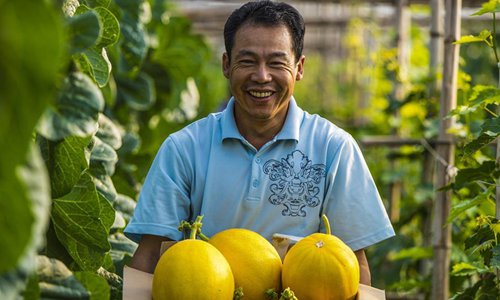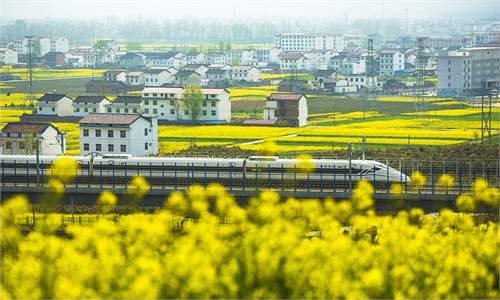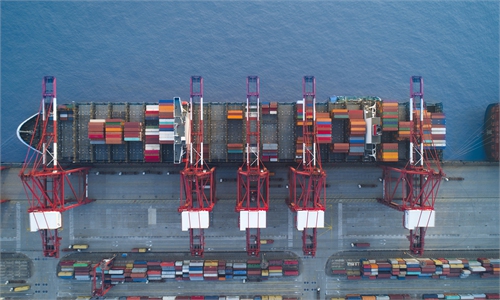
A farmer carries harvested muskmelons at Daboluo Village of Tanglin Township in Zaoqiang County, north China's Hebei Province, May 29, 2019. China's agriculture sector has seen rapid growth over the past 70 years, with grain output expanding 4.8 times, according to a report from the National Bureau of Statistics (NBS). China's grain output grew at an average annual rate of 2.6 percent from 1949 to reach 658 billion kg in 2018, managing to feed around 20 percent of the world's population with only less than 9 percent of the world's arable land, according to the report. The country increased the diversity of food supply by developing the breeding industry, with the output of aquatic products ranking first in the world since 1989, which stood at 64.6 million tonnes in 2018, 143 times higher than 1949. The structure of the agriculture industry was continuously optimized, with a modern pattern promoting all-round development of farming, forestry, animal husbandry and fishery replacing the traditional farming pattern, the NBS said. Scale operation of agriculture was enhanced by the progress of rural land circulation. Over 35 million hectares of family contracted farmland was circulated in 2018, posing a sharp contrast to the 58 million mu in 2004. The country also fostered new types of entities of agricultural production and service. By the end of 2018, 600, 000 family farms and 2.17 million farmer cooperatives had been registered. (Xinhua/Li Xiaoguo)
China is set to phase in a new "dual circulation" development strategy in the 14th Five-Year Plan (2021-25) period, according to the communique of the fifth plenary session of the 19th Central Committee of the Communist Party of China, released on Thursday.
To achieve a balance between development and economic security, the country will speed up building a modern economic system and accelerate the establishment of a new development pattern featuring "dual circulation", which takes the domestic market as the mainstay and allows the domestic and foreign markets to boost one another.
The communique stated that "internal circulation" must be made smoother to ensure that the "dual circulation" strategy to perform smoothly, amid other goals such as fostering the strength of the domestic market and invigorating rural development.
Analysts said China will seek to drastically boost the domestic consumer market to ensure long-term sustainable economic growth under the "dual circulation" strategy, making sure the country's economic growth could be less impacted by uncertainties and volatilities outside its borders, such as tariffs and technology wars with the US.
Chen Fengying, a research fellow at the China Institutes of Contemporary International Relations, said the strategy could give China more room to maneuver under the current uncertain international environment, and facilitate the transition to a high-quality, consumption-driven economy, but the flows of factors including capital, talent, information, technology and land must be made smoother.
However, Chen said building a "dual circulation" strategy cannot be completed overnight, and it involves tackling structural issues such as systemically improving disposable incomes of all its citizens and bridging China's rural-urban divide.
"China's vast rural areas, with roughly 700 million people, remain a development weak link, which call for earnest efforts to bridge the gap between rural and urban areas, including improving the so-called last-mile logistics, which have checked the economic growth of grass-roots communities," Chen told the Global Times on Thursday.
An inclusive development strategy is needed to balance the growth that is heralded by sectors such as information technology and the old-fashioned economy, as they provide a large portion of jobs, according to Chen.


